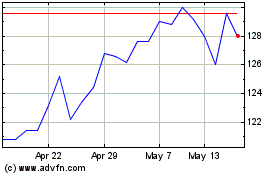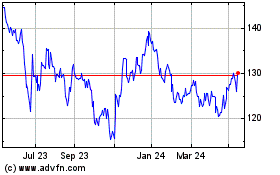All of the Committee's members are considered to be
appropriately experienced to fulfil their role, having significant,
recent and relevant financial experience in line with the AIC Code.
Biographies of the Committee members can be found on pages
51-52.
Committee Agenda
The Committee's agenda during the year included:
> Review of the final and interim financial statements and
matters raised by management and external auditors (including
significant financial reporting judgments therein)
> Review of the appropriateness of the Company's accounting policies
> Review of the effectiveness of the Group's internal control systems
> Review of the effectiveness, objectivity and independence
of the external auditors and the terms of engagement, cost
effectiveness and the scope of the audit
> Approving the external auditor's plan for the current year end
> Review of the policy on the provision of non-audit services by the external auditor
> Consideration and challenge of the draft valuation of the
Group's investments prepared by the Investment Adviser and
recommendations made to the Board on the appropriateness of the
valuation
> Review of the Company's risk profile, specific risks and mitigation practices
> Review of the Company's controls over cash forecasting
Key activities considered during the year
The Committee undertook the following activities in discharging
its responsibilities during the year:
Financial reporting
The Committee reviewed the Company's financial statements,
interim reports and interim management statements prior to approval
by the Board and advised the Board with respect to meeting the
Company's financial reporting obligations. The Committee reviewed
accounting policies and practices, including approval of the
critical accounting policies; considered the appropriateness of
significant judgements and estimates; and advised the Board that
the annual report and the financial statements, taken as a whole,
is fair, balanced and understandable.
The Committee considered the key accounting judgements exercised
in preparing the financial statements continued to be related to
the application of investment entity amendments as required by IFRS
10 and the basis for determining the fair value of the Company's
investments:
Investment entity and service entities accounting
considerations
A company which qualifies as an investment entity in accordance
with IFRS 10 is required to prepare financial statements on an
investment basis, that is carry underlying investments at fair
value.
Service entities that provide services in connection with the
investment entity's activities but that are not themselves
investment entities under IFRS 10 continue to be consolidated
within the investment entity's group accounts rather than accounted
for at fair value.
The Committee considered reports from the Investment Adviser
setting out the basis on which the Company continues to meet the
investment entity definition and certain subsidiary entities
continue to meet the service entity definition of IFRS 10 (but are
not themselves investment entities), and agreed this with the
Company's auditors. The Committee has accordingly recommended that
the Board approves the financial statements on this basis (i.e.
that investments are accounted for at fair value and service
entities consolidated). Further details on the application of
investment entity amendments and service entity considerations are
detailed in note 1 to the financial statements.
Fair Value of Investments
The Company's investments are typically in unlisted securities,
hence market prices for such investments are not typically readily
available. Instead the Company uses a discounted cash flow
methodology and benchmarks to market comparables to derive the
director's valuation of investments.
This methodology requires a series of judgements to be made as
explained in note 13 to the financial statements.
The valuation process and methodology were discussed with the
Investment Adviser regularly during the year and with the auditor
as part of the year-end audit planning and interim review
processes. The Committee also challenged the Investment Adviser on
the year-end fair value of investments as part of its consideration
of the audited financial statements.
During the period, the Committee reviewed the Investment
Adviser's quarterly valuation reports, reports on the performance
of the underlying assets and the Investment Adviser's assessment of
macro economic assumptions. The Investment Adviser confirmed that
the valuation methodology has been applied consistently with the
prior years. The Committee also reviewed and challenged the
valuation assumptions (discount rates, deposit rates, foreign
exchange rates, inflation rates and tax rates).
The auditor explained the results of their review of the
valuations, including their challenge of management's underlying
cash flow projections and assumptions; macro-economic assumptions;
and discount rate methodology and output. On the basis of their
audit work the auditor confirmed no material adjustments were
proposed.
The Committee, having considered the major assumptions applied
especially on larger investments, recommended its appropriateness
to the Board.
Internal controls over financial reporting
The Committee satisfied itself that the system of internal
control and compliance over financial reporting was effective,
through regular reports from the Investment Adviser and
Administrator.
The Committee also considered the adequacy of resources,
qualifications and experience of staff in the finance function. The
Committee Chairman had direct access and independent discussions
with the external auditor during the course of the year.
Controls and process reviews
Throughout 2014 the Company's governance and assurance functions
have continued to be enhanced as set out within the Corporate
Governance Report. As part of the Company's rolling annual controls
and processes review, an independent assessment of internal
controls over the cash flow forecasting process was commissioned.
The review confirmed adequate controls were in place and operating
in relation to the cash flow forecast process.
External Auditors
The Committee recommended to the Board the scope and terms of
engagement of the third party auditors. The Committee considered
auditor objectivity and independence, audit tenure and audit
tendering, and auditor effectiveness.
Objectivity and independence
In assessing the objectivity of the auditor, the Committee
considered the terms under which the external auditor may be
appointed to perform non-audit services. Work expected to be
completed by an external auditor includes formal reporting for
shareholders, regulatory assurance reports and work in connection
with new investments.
Under the policy there is a specific list of services for which
the external auditor cannot be engaged as the Committee considers
that the provision of such services would impact their
independence. Any potential services to be provided by the external
auditor that have an expected value of up to GBP50,000 and which
are not prohibited by the policy must be pre-approved by the
Chairman of the Committee; any services above this require
pre-approval by the full Committee.
Non-audit fees represented 11% of total audit fees, reflecting
the relatively low level of non-audit work conducted.
In order to maintain Ernst and Young's ('EY') independence and
objectivity, EY undertook its standard independence procedures in
relation to those engagements and confirmed compliance with these
to the Committee. Further details on the amounts of non-audit fees
paid to EY are set out in note 9 to the financial statements. These
were reported to and considered by the Committee as not being so
significant so as to risk impacting objectivity and
independence.
Audit Tendering and tenure
In October 2010, the Company put the audits of the Company and
controlled investment entities out to tender. In addition to
complying with good practice and satisfying new corporate
governance requirements, the tender enabled the Board to benchmark
competitiveness and value for money.
A number of firms were approached to tender for the audit. The
list was based upon their experience, industry skills and
knowledge, their ability to perform the audit to a high standard
and any pre-existing business relationships that might affect their
independence. Following a review of the proposals received, a
recommendation was made to the Board to appoint EY as the new
auditor (previously Deloitte LLP).
In accordance with the relevant Corporate Governance Code
principles the Committee will continue to review the effectiveness
of the external auditor and seek to retender in line with best
practice.
Review of auditor effectiveness
For the year ended 31 December 2014 the Committee reviewed the
effectiveness and independence of the external auditor. This was
facilitated through the completion of a questionnaire by relevant
stakeholders (including members of the Committee and senior members
of the Investment Adviser's finance team), review and challenge of
the audit plan for consistency with the Group's financial statement
risks, and review of the audit findings report.
Risk review
During 2014, the Committee carried out an in depth review of the
key risks faced by the Company. The exercise was aimed at
identifying possible gaps in the current risk framework. The review
resulted in identification of certain additional risks as well as
the alignment of internal and external reporting of risk. The
Company's risk register was updated to reflect the results of the
deliberations. The Committee was satisfied with the robustness of
the risk management framework in place.
Regulatory environment
International Public Par... (LSE:INPP)
Historical Stock Chart
From Jun 2024 to Jul 2024

International Public Par... (LSE:INPP)
Historical Stock Chart
From Jul 2023 to Jul 2024
